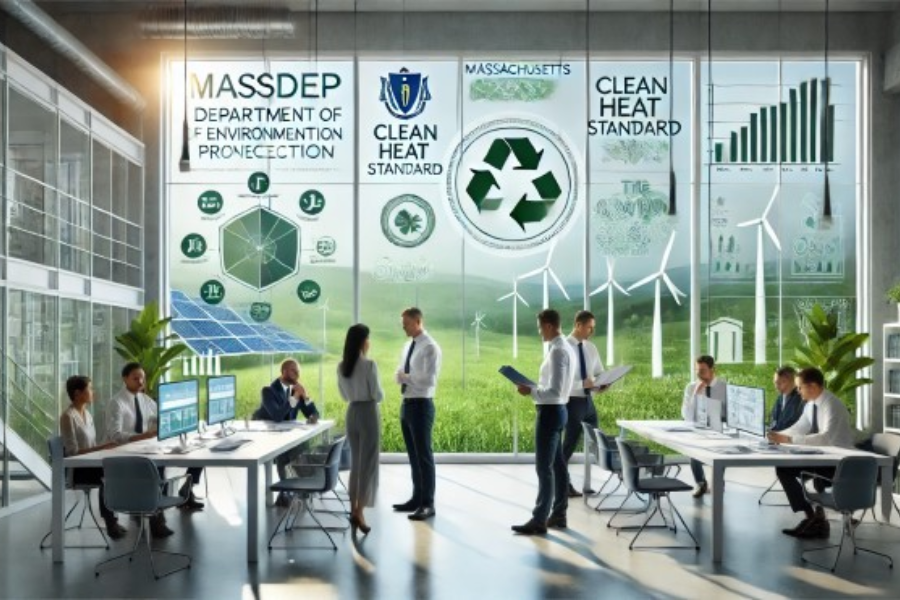Championing Environmental Sustainability: The Role of William Space and the Massachusetts Department of Environmental Protection
The Massachusetts Department of Environmental Protection (MA DEP) stands as a pillar of environmental advocacy, dedicated to safeguarding the health, safety, and well-being of its residents through a variety of initiatives. Among those leading the charge is William Space, an environmental analyst who has played a crucial role in implementing the Clean Heat Standard. This article explores the essential contributions of William Space and the MA DEP, emphasizing their commitment to fostering environmental sustainability.
The Mission of MA DEP
The Massachusetts Department of Environmental Protection is committed to protecting the state’s precious natural resources—air, water, and land. Its mission encompasses promoting environmental justice, ensuring fair access to clean resources, and actively involving communities in the decision-making process. The department tackles a range of environmental challenges, including pollution control and waste management, through a comprehensive and inclusive approach.
William Space: A Driving Force in Environmental Advocacy
William Space has been instrumental in shaping and advancing the Clean Heat Standard at MA DEP. His expertise and unwavering commitment to reducing greenhouse gas emissions have greatly influenced policy development. The Clean Heat Standard is a pivotal part of Massachusetts’ Clean Energy and Climate Plan for 2025 and 2030, which lays out ambitious strategies for transitioning to sustainable energy sources.
Understanding the Clean Heat Standard
What Is the Clean Heat Standard?
The Clean Heat Standard aims to promote the use of clean heating technologies, such as heat pumps, which are more energy-efficient and environmentally friendly than traditional heating systems reliant on combustion. Massachusetts is adopting this standard to diminish its dependence on fossil fuels, lower greenhouse gas emissions, and enhance energy efficiency.
How It Works
Under this standard, both homeowners and businesses are encouraged to install air-source or ground-source heat pumps, which are tracked via the Clean Heat and Emissions Tracking System. This system allows participants to earn credits for their efforts in cutting emissions, which can be traded, providing a financial incentive for compliance and further accelerating the adoption of clean heating technologies.
The Role of Regional Offices
MA DEP operates several regional offices across Massachusetts, each tasked with executing the department’s policies and addressing local environmental concerns. These offices play a vital role in enforcing environmental regulations and assisting communities in their efforts to preserve natural resources.
- Central Regional Office: Located in Worcester, this office focuses on issues like water quality management, air quality monitoring, and hazardous waste regulation, collaborating with local entities to tackle regional environmental challenges.
- Northeast Regional Office: Based in Wilmington, this office specializes in industrial compliance, site cleanup, and environmental permitting, working closely with businesses and municipalities to ensure adherence to environmental standards.
- Southeast Regional Office: Situated in Lakeville, this office addresses coastal and marine environmental issues, wetland protection, and air pollution control, playing a crucial role in safeguarding the region’s ecosystems.
- Western Regional Office: Located in Springfield, this office oversees environmental protection efforts in western Massachusetts, managing natural resources and monitoring air and water quality while fostering community engagement.
Addressing Key Environmental Challenges
Combating Climate Change
One of MA DEP’s primary objectives is to mitigate the effects of climate change. Initiatives like the Clean Heat Standard are designed to lower carbon emissions and bolster resilience in a changing climate. By promoting the use of renewable energy sources and improving energy efficiency, MA DEP is paving the way for a more sustainable future in Massachusetts.
Tackling Waste and Pollution
MA DEP also tackles waste management and pollution through stringent regulations and community programs. The department ensures the safe disposal of hazardous materials, encourages recycling and reuse, and aims to prevent pollution from industrial and commercial activities. These efforts are crucial for protecting the environment and safeguarding the health of residents.
Engaging the Community
Recognizing the importance of community involvement, MA DEP actively promotes education and engagement initiatives. The department offers educational resources, organizes public meetings, and engages with residents to foster ecological awareness and stewardship. By cultivating a culture of sustainability, MA DEP empowers communities to take an active role in protecting their natural surroundings.
Looking to the Future
As MA DEP looks forward, the department plans to continue its commitment to environmental protection by adopting innovative technologies and practices. Future initiatives will further expand the Clean Heat Standard to achieve even greater emissions reductions and improve energy efficiency. MA DEP remains dedicated to prioritizing environmental justice, ensuring that every community benefits from clean air, water, and land.
Conclusion
William Space and the Massachusetts Department of Environmental Protection are at the forefront of environmental protection and sustainability efforts. Through initiatives like the Clean Heat Standard, they are making significant strides in reducing carbon emissions and promoting clean energy. MA DEP’s holistic approach, coupled with community engagement and forward-thinking policies, positions Massachusetts as a leader in environmental stewardship. As the state continues to confront environmental challenges, the dedicated efforts of William Space and MA DEP will be essential in shaping a healthier and more sustainable future for all residents.
Explore insightful discussions and expert analyses on pressing topics at sethbtaube.org.




